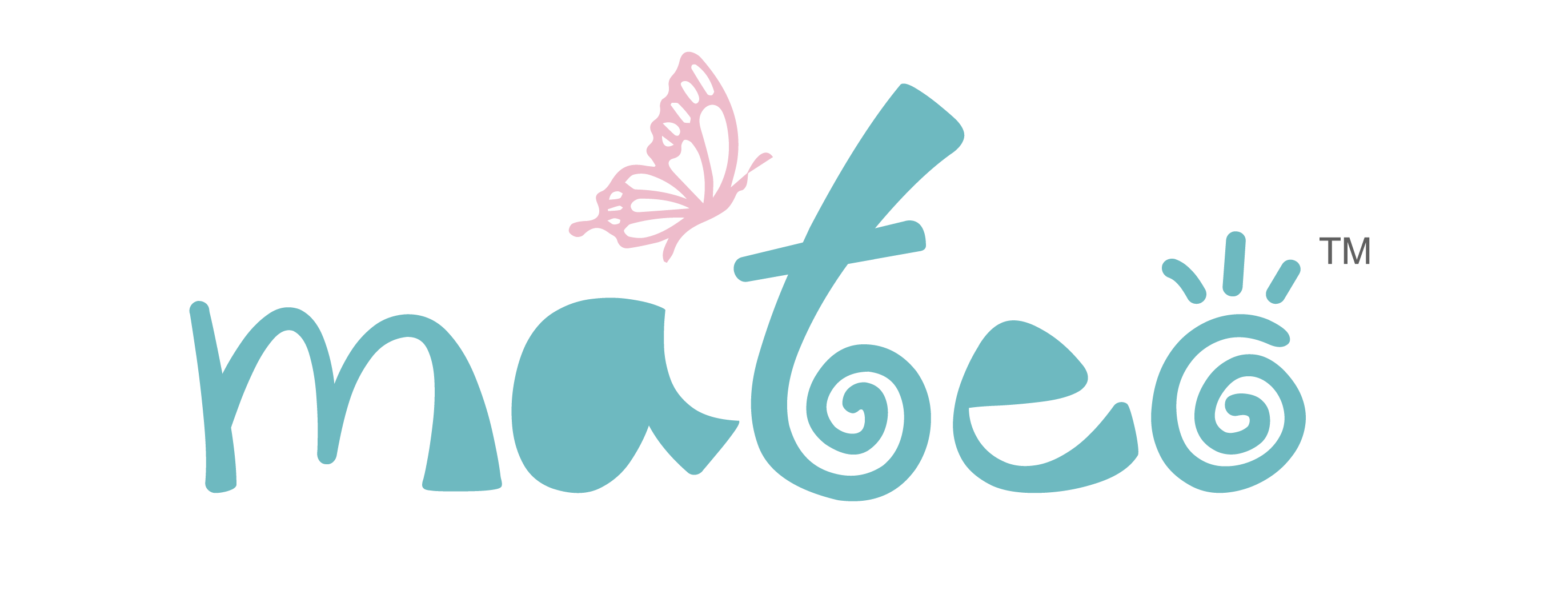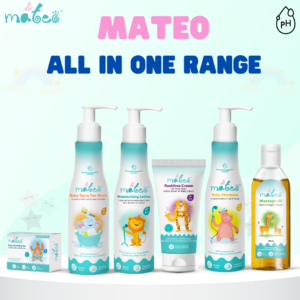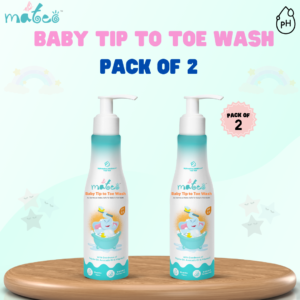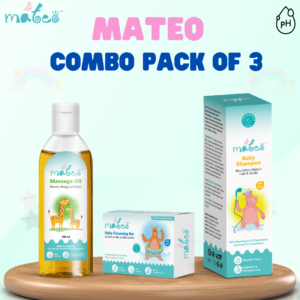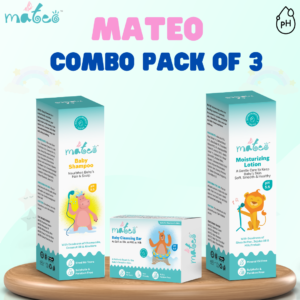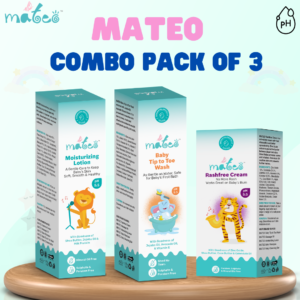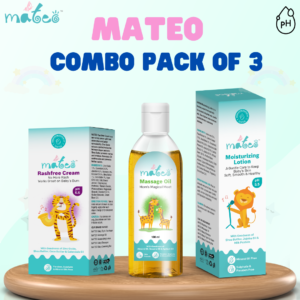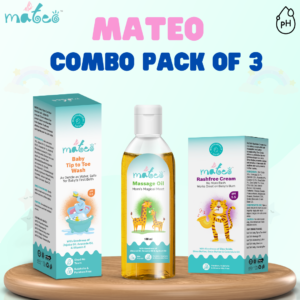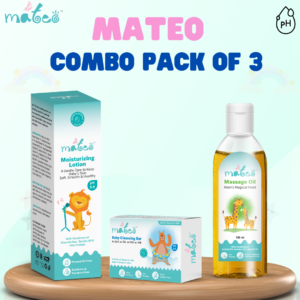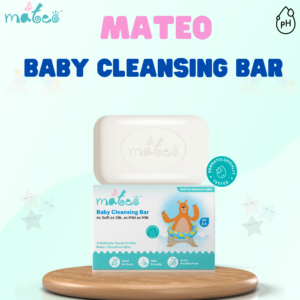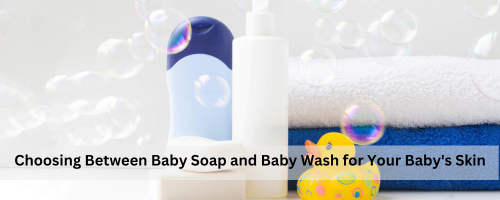
Choosing Between Baby Soap and Baby Wash for Your Baby’s Skin
Looking for the one which is best for the baby, baby soap or baby wash for a young little one?
The most valuable people in your life are your tiny little bundles of happiness. Of course, you want to make sure they receive the best care possible. Their sensitivity to outside stimuli at this sensitive time necessitates the use of special surveillance techniques.
Keeping things clean and fresh is essential to guarantee your children’s health all year long. But as a parent, you may frequently wonder: is a baby body wash or baby soap healthier for your baby’s skin? Let’s investigate this complex question to learn more about the advantages and disadvantages of each of these solutions for your baby’s sensitive skin.
Positive Impacts of Soap on Your Baby’s Skin
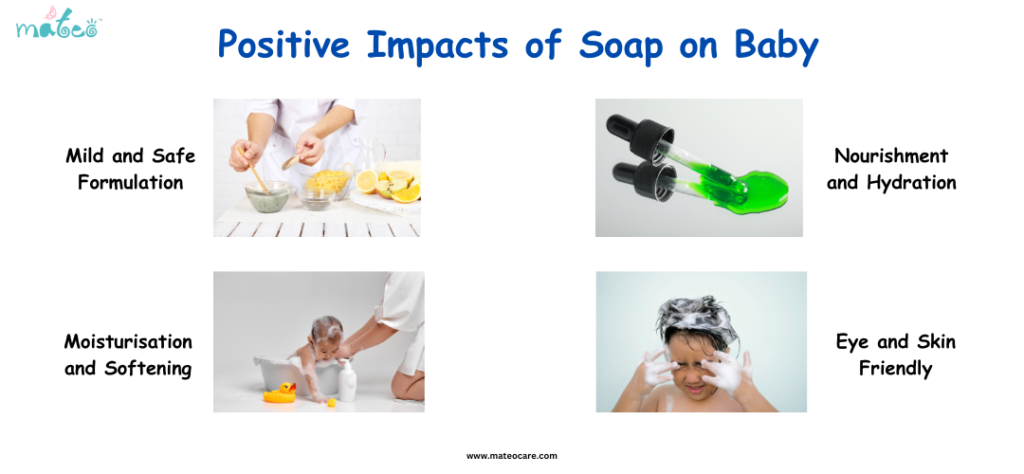
- Mild and Safe Formulation: Since no harsh chemicals are used in the manufacturing process, baby soaps are made to be mild and safe for your children. The likelihood of skin irritation or unfavourable responses is reduced by the lack of harsh ingredients.
- Moisturisation and Softening: Using baby wash soaps on a regular basis helps to soften and moisturise your baby’s sensitive skin. These soap’s organic components help to soften the texture of skin without harming it.
- Nourishment and Hydration: Rich in vital nutrients like milk proteins and vitamin E, baby soaps provide your baby’s skin the crucial moisture and nourishment. Almond, olive, glycerine, honey, and other ingredients reduce irritation while also providing additional skin nutrition.
- Eye and Skin Friendly: Formulated explicitly to cause minimal to no irritation to the eyes or skin, these soaps contain components like honey, glycerine, almond, and olive oil, making them comfortable and safe for your baby during bath time.
Negative Impacts of Soap on Your Baby’s Skin
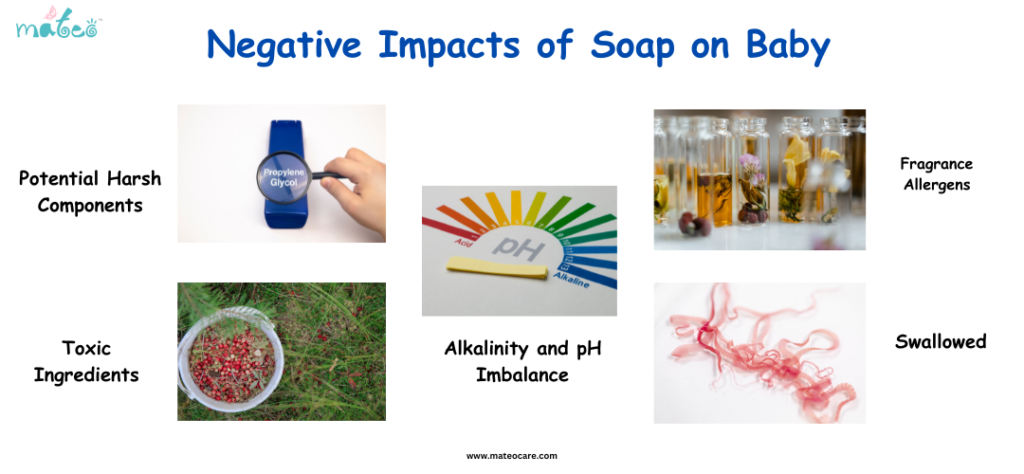
- Potential Harsh Components: Some baby soaps may contain elements like ethyl alcohol, propylene glycol, or Sodium Laureth Sulfate (SLES), which, when used for extended periods, can lead to skin irritation or adverse reactions.
- Toxic Ingredients: Components such as Cocamidopropyl betaine, coconut diethanolamine, and propylparaben, if present in baby soaps, can be toxic for young children, potentially causing allergic reactions or skin issues.
- Alkalinity and pH Imbalance: Baby soaps, being slightly alkaline, might not match your baby’s natural skin pH level, potentially causing irritation or discomfort over prolonged use.
- Fragrance Allergens: Some baby soaps contain fragrances that may include allergens or irritants, particularly problematic for babies with sensitive skin, leading to skin irritation or allergies.
- Potential for Ingestion: There is a risk of ingestion of soap foam or water during bath time, leading to adverse effects like throat burn, nausea, or vomiting if accidentally swallowed by your baby.
Also, Read our Blog – Difference Between Soap & Bar
Positive Impacts of Baby Body Wash on Your Baby’s Skin
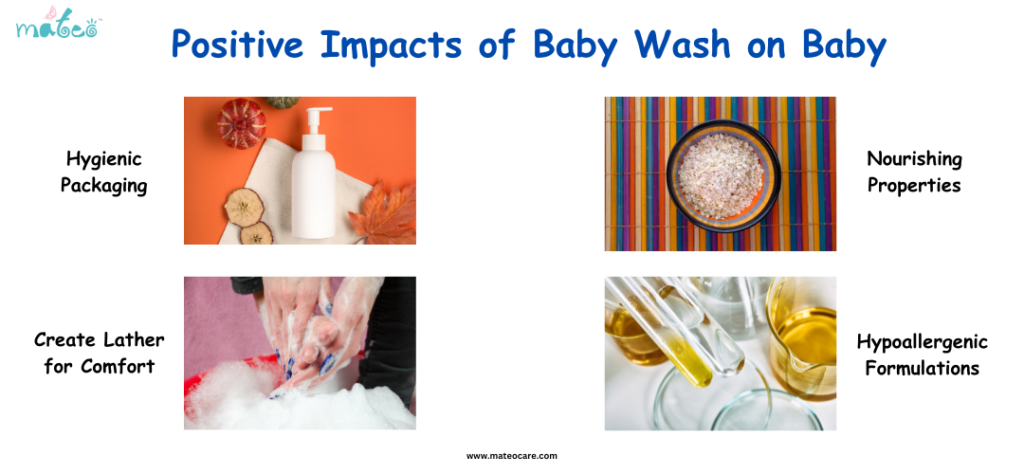
- Hygienic Packaging: Being contained in sealed containers, best baby wash is relatively more hygienic, reducing the risk of contamination by airborne bacteria and maintaining product integrity.
- Create Lather for Comfort: Best baby washes to create a lather that ensures an all-around clean-up, making bath time comfortable and relaxed for your child. The lathering experience can be soothing for the baby.
- Nourishing Properties: Some baby body washes contain ingredients like oats that help in retaining natural skin oils and soothe dryness, making them suitable for babies with sensitive or dry skin.
- Hypoallergenic Formulations: Certain body washes are hypoallergenic, ensuring they do not cause adverse side effects, making them a safer option even for babies with hypersensitive skin.
Negative Impacts of Body Wash on Your Baby’s Skin
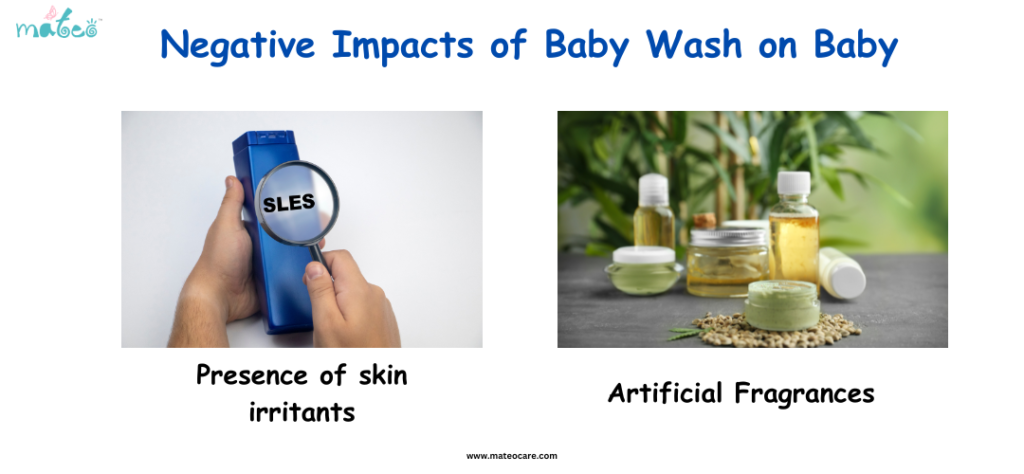
- The presence of skin irritants can cause dryness, redness, or coarseness on the skin, especially in babies with sensitive skin. Examples of these components are sodium lauryl sulphate (SLS), which is found in body washes.
- Long-term Health Effects and Artificial Fragrances: Phthalate esters, which are present in some body washes, have the potential to cause long-term health problems for your unborn child.
Making an educated choice about the best skincare product for your baby’s sensitive skin can be aided by knowing the advantages and disadvantages of body wash and soap. For your baby’s skincare requirements, always give natural ingredients top priority and consult medical professionals.
Making the Choice: Soap or Body Wash for Your Baby
The choice between baby soap for dry skin and body wash for your baby’s skincare routine is still subjective. Understanding the ingredients and choosing products free of harmful elements are critical. Seek medical advice, use natural ingredients, and limit bathing time to 5-7 minutes to avoid overexposure to water.
You have the duty of providing these fragile people with care as their parents. In the end, you have to use your judgement when deciding between body wash and soap, taking your baby’s skin type and requirements into account. Your well-informed choice protects your child’s comfort and well-being.
Mateo baby products are well-formulated for the baby-sensitive skin. It involves ingredients that nourish and moisturise the soft baby’s skin. The best baby soap for dry skin and body wash are formulated in such a way as to protect your baby’s skin from dryness and gently cleanse your baby’s skin without stripping out natural oils. It is crucial to choose a soap that is specifically designed. Mateo baby bar is trusted by many parents as the ingredients used in it are free of chemicals, maintain pH 5.5 and are dermatologically tested. Choose the one that suits well for your baby’s sensitive skin. It is always advisable to do a patch test before using any product on your baby’s sensitive skin.
In conclusion, the best person to determine what’s best for your child is you, the parent. You are the best nurturer and protector for your child’s sensitive skin because of your commitment and compassion.
Frequently Asked Questions
1. Is the skin of my infant always safe to use natural or organic baby soaps?
While baby soaps that are natural or organic typically include kinder components, not all of the formulas are suitable for every baby’s skin type. To make sure your infant doesn’t experience a negative reaction, a patch test must be performed before frequent usage. A paediatrician or dermatologist should be consulted before introducing a new soap to a baby, since some newborns may develop sensitivities to even natural substances.
2. What is the best way to stop my infant from swallowing baby wash or soap when taking a bath?
When giving your infant a bath, keep a close watch on them to reduce the chance of ingestion. Use as little soap or body wash as possible, especially around the facial region, and do not leave your kid unsupervised. Choose formulas that won’t cause tears, and instead of using soap, gently wipe your baby’s face with a moist towel. Furthermore, instil in your child the value of not consuming soap, and watch over them until they are old enough to know better than to put water or soap in their mouths.

Nivethitha Sridharan
Nivethitha is a mother of two children and has a great interest in writing as an experienced mother. She publishes educational and interesting articles on baby care and also assists parents in selecting the finest baby products for their baby’s skin and well-being. She focuses on infant skin care and health issues. She also provides suggestions and guidance on baby care and avoids common skin disorders in newborns. Nivethitha likes studying and writing about new and innovative ideas that might assist people in finding solutions to their problems. She feels that content writing is an effective means of communicating thoughts and information to the world.
-
Mateo All in One Pack
₹1,700.00Add to cart -
Mateo Baby Body Wash – 200 ml (Pack of 2)
₹790.00Add to cart -
Mateo Baby Care Collection – Mateo Baby Massage Oil(100ml), Mateo Baby cleansing bar(75gm), Mateo Baby Shampoo(200ml)
₹775.00Add to cart -
Mateo Baby Care Collection – Mateo Baby Moisturizing Lotion(200ml), Baby Cleansing Bar(75gm), Baby Shampoo(200ml)
₹930.00Add to cart -
Mateo Baby Care Collection – Mateo Baby Moisturizing Lotion(200ml), Mateo Baby Body Wash(200ml), and Mateo Baby Rashfree Cream(60gm)
₹925.00Add to cart -
Mateo Baby Care Collection – Mateo Moisturising Lotion(200ml)+ Mateo Baby Rashfree Cream(60g) + Mateo Baby Massage Oil(100ml)
₹725.00Add to cart -
Mateo Baby Care Collection-Mateo Baby Body Wash(2ooml), Baby Rashfree Cream(60gm), Baby Massage Oil(100ml)
₹770.00Add to cart -
Mateo Baby Care Collection-Mateo baby moisturizing lotion(200ml), Baby cleansing bar(75gm), Baby massage Oil(100ml)
₹730.00Add to cart
